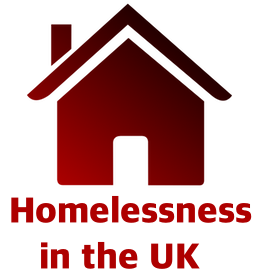I’ve wrote a series of Mental Health Focus blog posts to help to #EndTheStigma around mental health and to encourage others to talk openly and honestly about their own mental health. In this post I’ll give some information around common mental health conditions.
To find information about a condition quickly, by clicking the link: Addiction, Anxiety, Bipolar, Bereavement, Depression, Eating Disorders, OCD (Obsessive Compulsive Disorder), Schizophrenia & Stress. EMERGENCY HELP!
Addiction – Alcohol, Drugs, Sex, Gambling, etc.
Addiction is a strong, uncontrollable need to take drugs, drink alcohol or carry out a particular activity such as gambling.
It becomes the most important thing in your life and leads to problems at home, work and school.
There’s no single reason why addictions develop. Regularly drinking alcohol or using other substances, or spending time gambling or on the internet (including porn sites), may be pleasurable or relaxing. Some people experience these feelings particularly intensely and have a strong desire to repeat them more often.
You’re more at risk of developing an addiction if:
– other members of your family have addiction problems
– you experienced stress or abuse while growing up
– you have mental health problems
(From: NHS Choices, Last Accessed on 28th December 2014)
For more information visit: Talk to Frank, DrugScope, Drink Aware & Gamblers Anonymous.
Back To Top
Anxiety
Anxiety is a feeling of unease, such as worry or fear, that can be mild or severe.
Everyone has feelings of anxiety at some point in their life. For example, you may feel worried and anxious about sitting an exam or having a medical test or job interview. During times like these, feeling anxious can be perfectly normal.
However, some people find it hard to control their worries. Their feelings of anxiety are more constant and can often affect their daily life.
Anxiety is the main symptom of several conditions, including panic disorder, phobias, post-traumatic stress disorder and social anxiety disorder (social phobia).
(From: NHS Choices, Last Accessed on 28th December 2014)
For more information visit: Anxiety UK & No Panic.
Back To Top
Bipolar
Bipolar disorder, formerly known as manic depression, is a condition that affects your moods, which can swing from one extreme to another.
If you have bipolar disorder, you will have periods or episodes of:
– depression – where you feel very low and lethargic
– mania – where you feel very high and overactive (less severe mania is known as hypomania)
Symptoms of bipolar disorder depend on which mood you are experiencing. Unlike simple mood swings, each extreme episode of bipolar disorder can last for several weeks (or even longer), and some people may not experience a “normal” mood very often.
(From: NHS Choices, Last Accessed on 28th December 2014)
For more information visit: Bipolar UK.
Back To Top
Bereavement
The death of someone close can be shattering. Everyone experiences grief differently; there is no ‘normal’ or ‘right’ way to grieve. How we react will be influenced by many different things, including our age and personality, our cultural background and religious beliefs, our previous experiences of
bereavement, our circumstances and how we cope with loss.
After a death you may initially feel shocked, numb, guilty, angry, afraid and full of pain. These feelings may change to feelings of longing, sadness, loneliness − even hopelessness and fear about the future.
These feelings are not unnatural, or wrong. They are all ‘normal’ reactions to what may be the most difficult experience of your life. Over time these feelings should lessen.
Every person’s experience of grief is unique…
(From: Cruse Bereavement Care – Has someone died? Restoring Hope, Last Accessed on 28th December 2014)
For more information visit: NHS Choices – Bereavement & Cruse Bereavement Care.
Back To Top
Depression
Depression is more than simply feeling unhappy or fed up for a few days.
We all go through spells of feeling down, but when you’re depressed you feel persistently sad for weeks or months, rather than just a few days.
Some people still think that depression is trivial and not a genuine health condition. They’re wrong. Depression is a real illness with real symptoms, and it’s not a sign of weakness or something you can “snap out of” by “pulling yourself together”…
Depression affects people in different ways and can cause a wide variety of symptoms.
They range from lasting feelings of sadness and hopelessness, to losing interest in the things you used to enjoy and feeling very tearful. Many people with depression also have symptoms of anxiety.
There can be physical symptoms too, such as feeling constantly tired, sleeping badly, having no appetite or sex drive, and complaining of various aches and pains.
The severity of the symptoms can vary. At its mildest, you may simply feel persistently low in spirit, while at its most severe depression can make you feel suicidal and that life is no longer worth living.
(From: NHS Choices, Last Accessed on 28th December 2014)
For more information visit: Depression Alliance.
Back To Top
Eating Disorders
Eating disorders are characterised by an abnormal attitude towards food that causes someone to change their eating habits and behaviour.
A person with an eating disorder may focus excessively on their weight and shape, leading them to make unhealthy choices about food with damaging results to their health.
Types of eating disorders
Eating disorders include a range of conditions that can affect someone physically, psychologically and socially. The most common eating disorders are:
– anorexia nervosa – when someone tries to keep their weight as low as possible, for example by starving themselves or exercising excessively
– bulimia – when someone tries to control their weight by binge eating and then deliberately being sick or using laxatives (medication to help empty their bowels)
– binge eating – when someone feels compelled to overeat
Some people, particularly young people, may be diagnosed with an eating disorder not otherwise specified (EDNOS). This is means you have some, but not all, of the typical signs of eating disorders such as anorexia or bulimia.
(From: NHS Choices, Last Accessed on 28th December 2014)
For more information visit: beat.
Back To Top
OCD (Obsessive Compulsive Disorder)
Obsessive compulsive disorder (OCD) is a mental health condition where a person has obsessive thoughts and compulsive activity.
An obsession is an unwanted and unpleasant thought, image or urge that repeatedly enters a person’s mind, causing feelings of anxiety, disgust or unease.
A compulsion is a repetitive behaviour or mental act that someone feels they need to carry out to try to temporarily relieve the unpleasant feelings brought on by the obsessive thought.
For example, someone with a fear of their house being burgled may feel they need to check all the windows and doors are locked several times before they can leave the house.
OCD symptoms can range from mild to severe. Some people with OCD may spend an hour or so a day engaged in obsessive-compulsive thinking and behaviour, but for others the condition can completely take over their life.
(From: NHS Choices, Last Accessed on 28th December 2014)
For more information visit: OCD Action & Mind – Obsessive Compulsive Disorder (OCD).
Back To Top
Schizophrenia
Schizophrenia is a long-term mental health condition that causes a range of different psychological symptoms, including:
– hallucinations – hearing or seeing things that do not exist
– delusions – unusual beliefs not based on reality which often contradict the evidence
– muddled thoughts based on the hallucinations or delusions
– changes in behaviour
Doctors often describe schizophrenia as a psychotic illness. This means sometimes a person may not be able to distinguish their own thoughts and ideas from reality.
(From: NHS Choices, Last Accessed on 28th December 2014)
For more information visit: Rethink: Schizophrenia.
Back To Top
Stress
Stress is the feeling of being under too much mental or emotional pressure.
Pressure turns into stress when you feel unable to cope. People have different ways of reacting to stress, so a situation that feels stressful to one person may be motivating to someone else.
Many of life’s demands can cause stress, particularly work, relationships and money problems. And, when you feel stressed, it can get in the way of sorting out these demands, or can even affect everything you do.
Stress can affect how you feel, think, behave and how your body works. In fact, common signs of stress include sleeping problems, sweating, loss of appetite and difficulty concentrating.
You may feel anxious, irritable or low in self esteem, and you may have racing thoughts, worry constantly or go over things in your head. You may notice that you lose your temper more easily, drink more or act unreasonably.
You may also experience headaches, muscle tension or pain, or dizziness.
Stress causes a surge of hormones in your body. These stress hormones are released to enable you to deal with pressures or threats – the so-called “fight or flight” response.
Once the pressure or threat has passed, your stress hormone levels will usually return to normal. However, if you’re constantly under stress, these hormones will remain in your body, leading to the symptoms of stress.
(From: NHS Choices, Last Accessed on 28th December 2014)
For more information visit: Mind – How to manage stress & Mental Health Foundation – Stress.
Back To Top
Emergency Help!
If you are experiencing an episode of poor mental health, two useful websites are: Mind and SANE. If you are feeling suicidal please visit your nearest A&E Department for crisis support. Back To Top
How do you manage your own mental and emotional health? Leave a comment below.
Write soon,
Antony






A great introductory article on candle magic :)
Hi Sofia, Thanks for the comment. I bought that in Glastonbury and he was a real find. I bought him…
Hi! I know this was posted ages ago and so a response may be rare but my dad has been…
Hi Ruth, Thanks for the comment. He might well have been. A x
Hi! Watching video and interviews with Charlie Watt, it had me wondering if he might have had Aspergers/ been on…